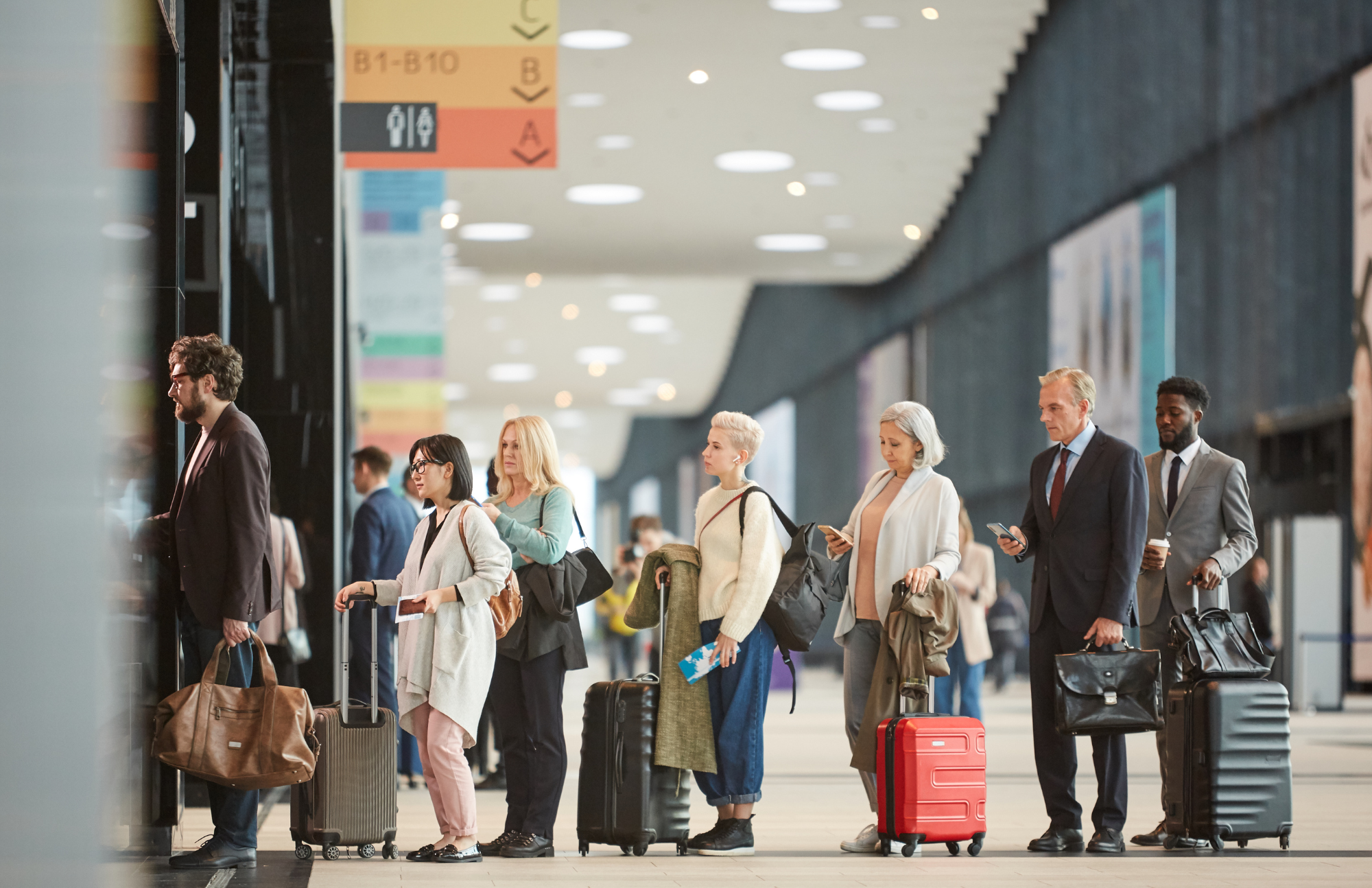Industry Confidential
Check in every issue for the unfiltered thoughts of our guest writers and contributors as they discuss the hottest topics in sports tourism.
In this issue, our guest writer discusses the current state of affairs of the U.S. Border Policy.
U.S. Border Policy
A Scary Scenario for International Spectators
Lately, it seems an awful lot like the United States wants the party, but won’t open the door. The United States is lining up the 2026 FIFA World Cup and the 2028 Los Angeles Olympics like they’re back-to-back Super Bowls for the global stage. The economic upside is massive. But the most significant risk isn’t stadium readiness or sponsor dollars, it’s whether international fans can get in. America’s visa and customs systems are slow, unpredictable, and in some cases downright unwelcoming.
With expected warning lights at arrival gates, international travelers are already changing plans. Booking Holdings CEO Glenn Fogel reports a 3.8% drop in arrivals for the first seven months of 2025, with July alone down 5.1%. The culprits: endless queues, staffing shortages, and a $250 visa integrity fee that feels more like a surcharge for frustration than a security measure. Instead of rolling out the red carpet, the U.S. is setting up hurdles.
We’re seeing a trend in international visitors choosing Canada over California. Europe’s largest tour operators, including Tui, say travelers are bailing on U.S. trips entirely, opting for Canada, Asia, or Africa instead. Reasons range from marathon visa waits to hostile customs experiences, including detentions of travelers who had all the proper paperwork. It’s not a good look, especially when the world’s most significant sports events are at stake.
Unlike leisure vacations, sports tourism runs on hard deadlines. If you can’t get a visa before the knockout round, you’re not coming at all. The Club World Cup in the U.S. was a warning shot: fans detained at airports, visa bottlenecks everywhere, and a 10% drop in March arrivals compared to last year. Tourism Economics predicts a 9.4% overall decline in international visits for 2025—exactly when the numbers should be climbing.
Visa interview wait times now top 330 days in India, Colombia, Peru, and Honduras. In some consulates, it’s over 850 days. Fans won’t know their match locations until late ticket sales, which means they’re gambling on travel they might not even be able to book in time. For the average supporter, the odds just aren’t worth it.
Senator Ron Wyden warns that delays and drop-offs could cost the U.S. $9 billion in lost tourism spending. Houston’s World Cup organizers are dealing with the same uncertainty, compounded by year-long visa queues. Boston, which could see a $1.1 billion boost from its matches, knows bad headlines about detained fans or glacial customs lines could tank the mood and the turnout.
FIFA President Gianni Infantino is staying upbeat, citing political commitments to welcome fans. But advocacy groups say inclusivity rings hollow if border policies keep ticket holders out. Add in security escalations, like National Guard deployments in protest-heavy host cities, and the optics get even messier.
Lost ticket sales, empty hotels, half-full restaurants, and underperforming sponsorship activations are all real possibilities. And the U.S. is refusing to use a proven playbook: streamlined entry for verified ticket holders. Russia did it in 2018. Qatar did it in 2022. America hasn’t announced anything.
Here are four hard truths: 1. An economic fallout is expected as billions in lost revenue are on the table; 2. we have a reputation risk as a growing perception of being unwelcoming will stick; 3. a logistical gridlock will occur as Visas and customs delays don’t mesh with sports tourism timelines; and 4. we’ll be at a tactical disadvantage as our competitors have streamlined entry, while the U.S. hasn’t.
We need to play ball or risk losing the game. America is sitting on a historic sports tourism opportunity. But without decisive action, surging consular staff, modernizing visa systems, and properly staffing customs checkpoints, these opportunities could turn into the most red-tape-restricted global sports events in modern history. If the U.S. wants to host the most inclusive World Cup and Olympics ever, step one is making sure fans from around the world can get here. Right now, that’s not a sure thing.

